
Exciting new series on “Voice, Body and Movement for Lawyers – How to connect with the jury and find Justice Through Dramatic Technique!”
Click here to find out more
There is a long overdue focus on wellness in the legal profession. Unfortunately, most attorneys, like most people, are still largely unaware of how their emotional life can impact their professional work. This lack of understanding can trigger problems with client communication and effectiveness at work and, in the worst-case scenarios, lead to professional malpractice and discipline. Roughly 85% of people believe they are highly self-aware, yet when that self- awareness is measured- barely 15% genuinely are. This course will help narrow that self- awareness gap.
This interactive program, taught by Doug Leonard, a behavioral consultant, executive coach, and former Chair of the Pennsylvania Disciplinary Board, will reintroduce you to yourself by delving into your physical, social, and emotional energy behaviors. You will learn to conduct a self- assessment of your personal physical, social, and emotional needs, notice what causes you to experience stress in any area, and identify the specific actions that will help you recharge. Self- care is not universal, and by understanding yourself better, you will learn what types of practices will increase your resiliency and help you thrive.
Throughout the program, Mr. Leonard will present real-life scenarios that led to attorneys being disciplined, point to the Model Rules implicated when these attorneys ignored their well-being, and explore practical, actionable techniques that could have helped avoid these ethical lapses.
This program will benefit attorneys at every level of practice.
Learning Objectives:
1. Spot the differences between your learned and socialized behaviors and your motivational expectations, and why understanding the distinction is crucial to maintaining well-being and an ethical law practice.
2. Identify, through rapid self-assessment, your strengths, and expectations and how unmet expectations generate counterproductive stress-reactive behaviors that can lead to attorney discipline.
3. Use your unique mix of physical, social, and emotional energy to enhance your work and, ultimately, your well-being.
4. Realize and avoid potential ethical traps that a lawyer may succumb to when practicing in their stress-reactive behavior.
5. Create sound communication strategies to impart your physical, social, and emotional energy needs to key individuals with whom you work, scaling these ethical and effective behaviors throughout your law firm.
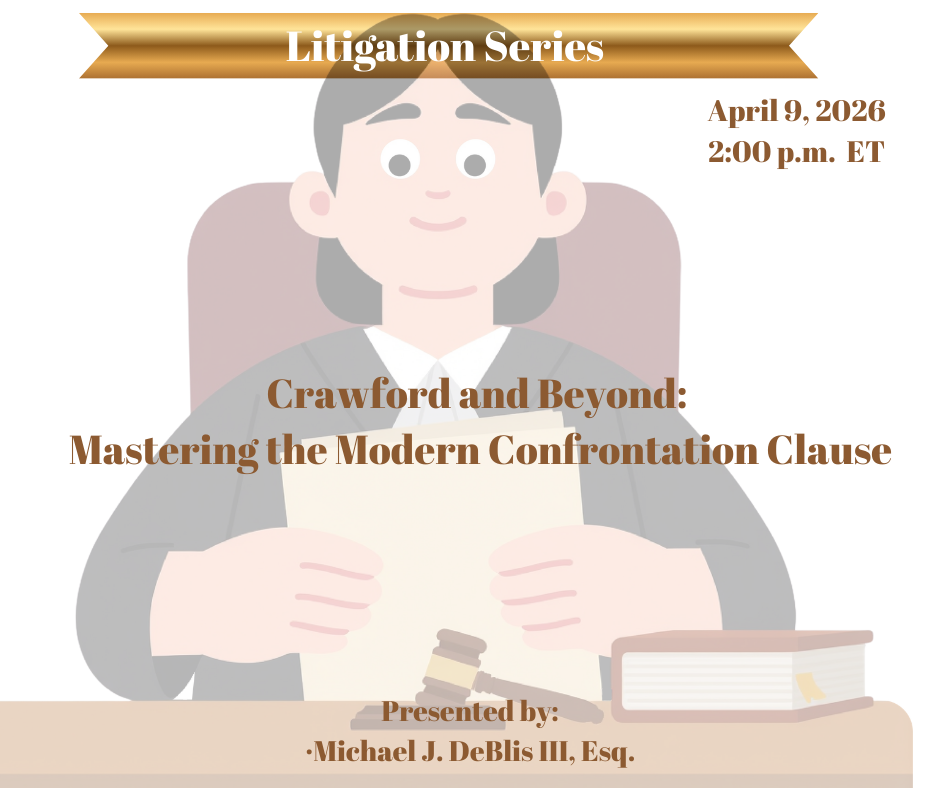
This program provides a comprehensive analysis of the Sixth Amendment Confrontation Clause as reshap...
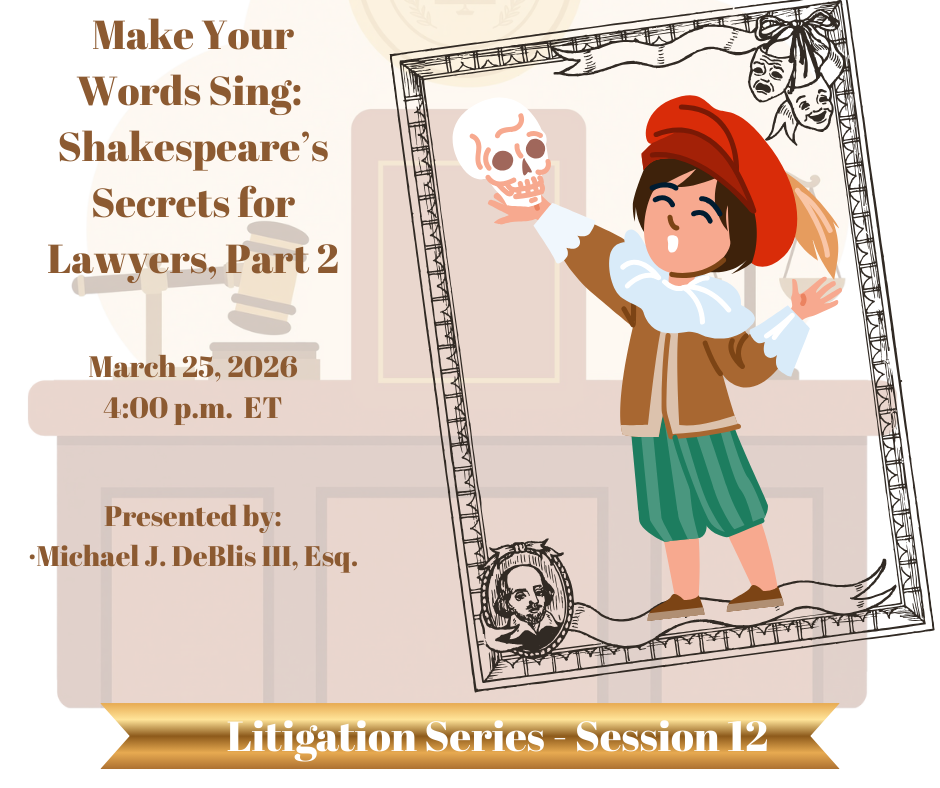
This companion program to Part 1 goes deeper into the rhetorical power of Shakespeare, emphasizing h...
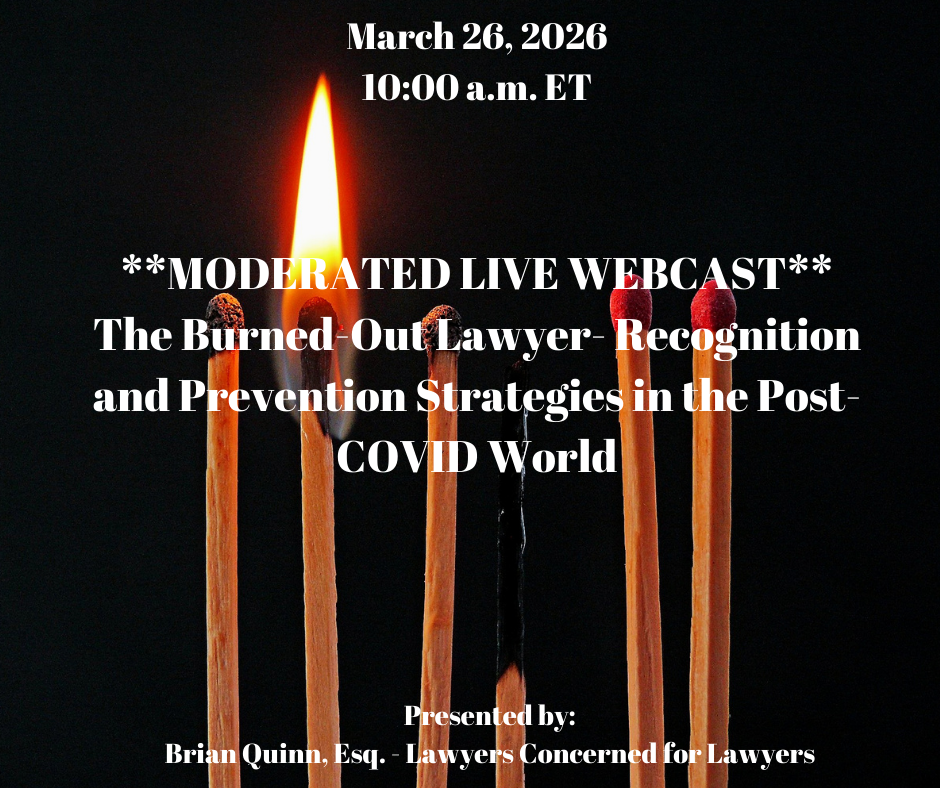
If there is one word we heard during our journey through the pandemic and continue to hear more than...
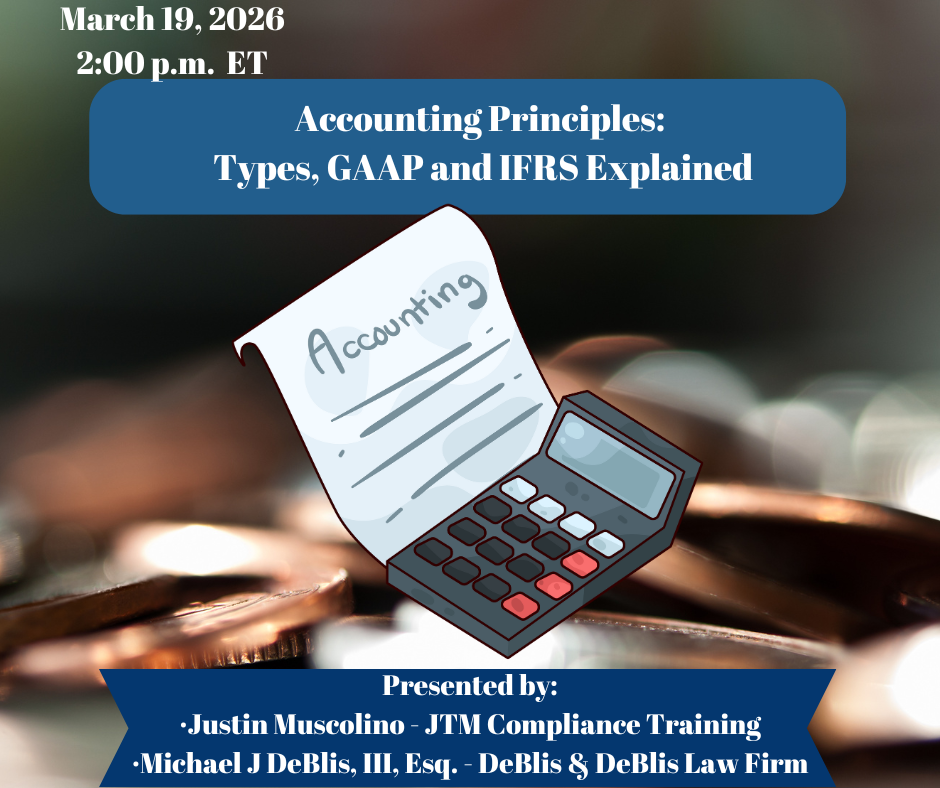
Attorneys will receive a comparative analysis of GAAP and IFRS with emphasis on cross-border legal c...
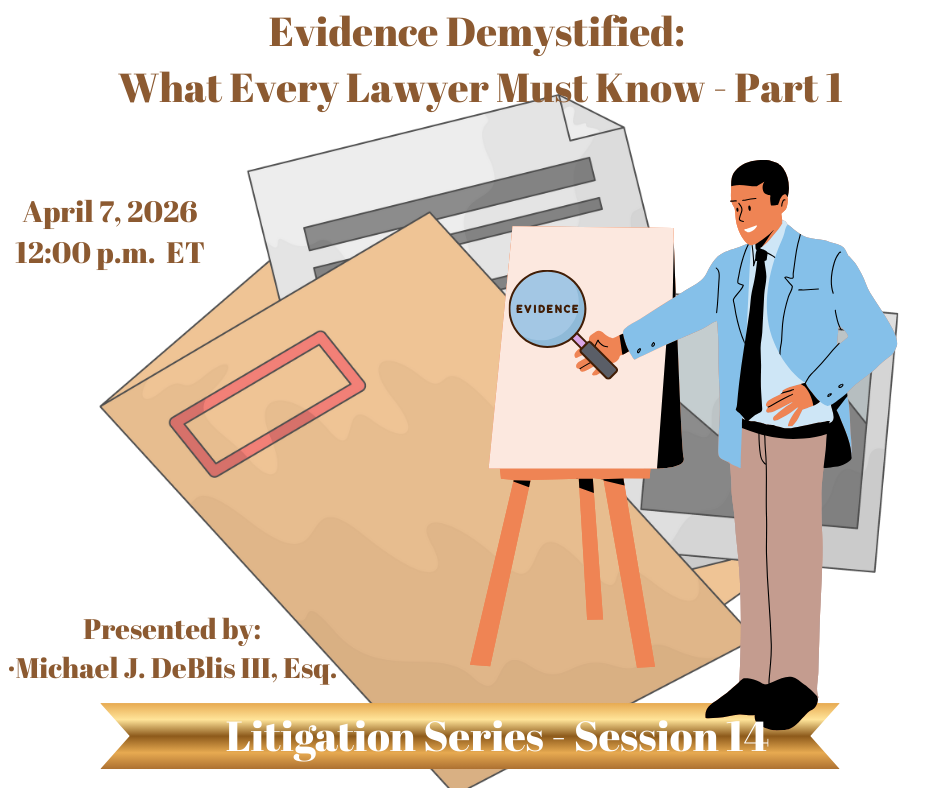
Evidence Demystified Part 1 introduces core evidentiary principles, including relevance, admissibili...
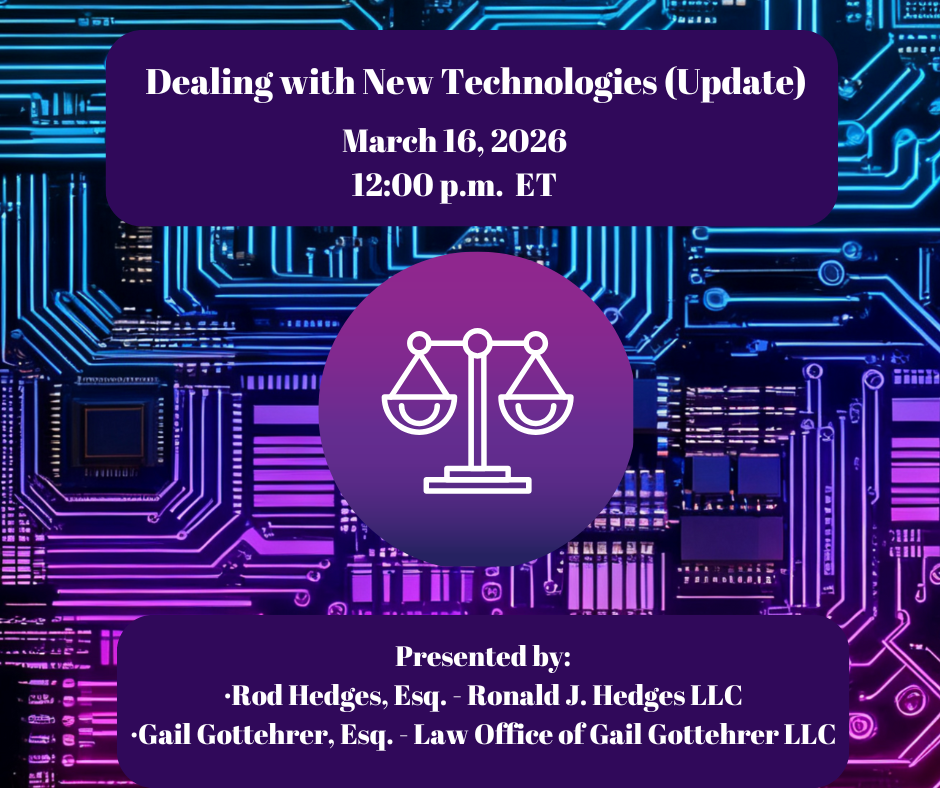
Disasters, whether natural or manmade, happen. Disasters can impact the practice of law and, among o...
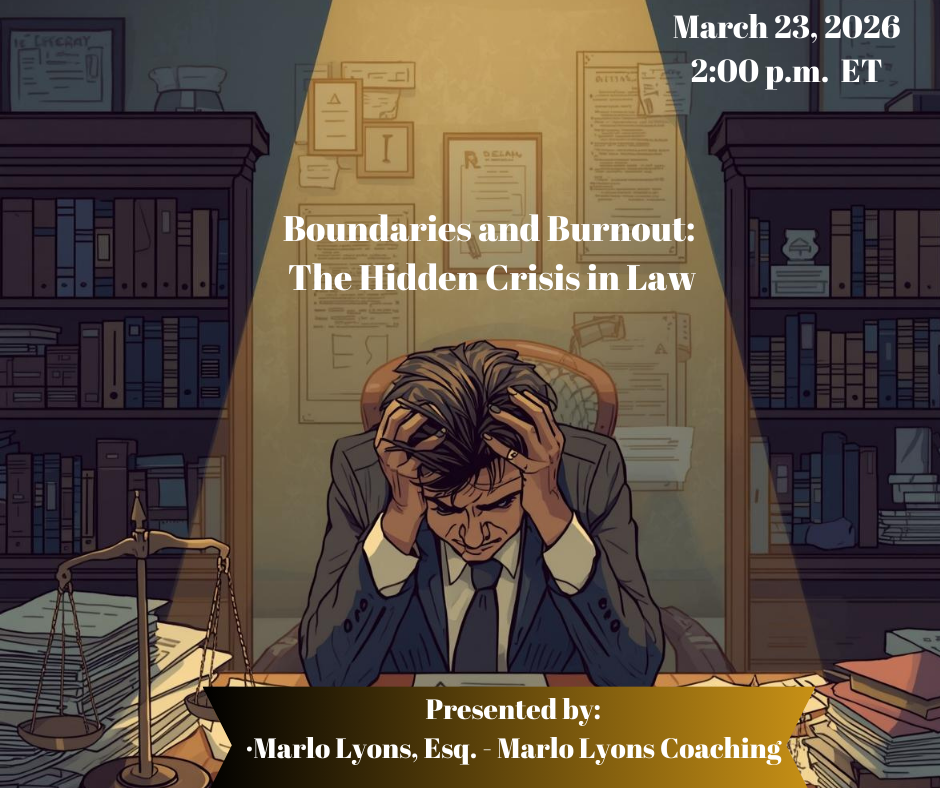
Boundaries and Burnout: The Hidden Crisis in Law is a 60-minute California MCLE Competence Credit pr...
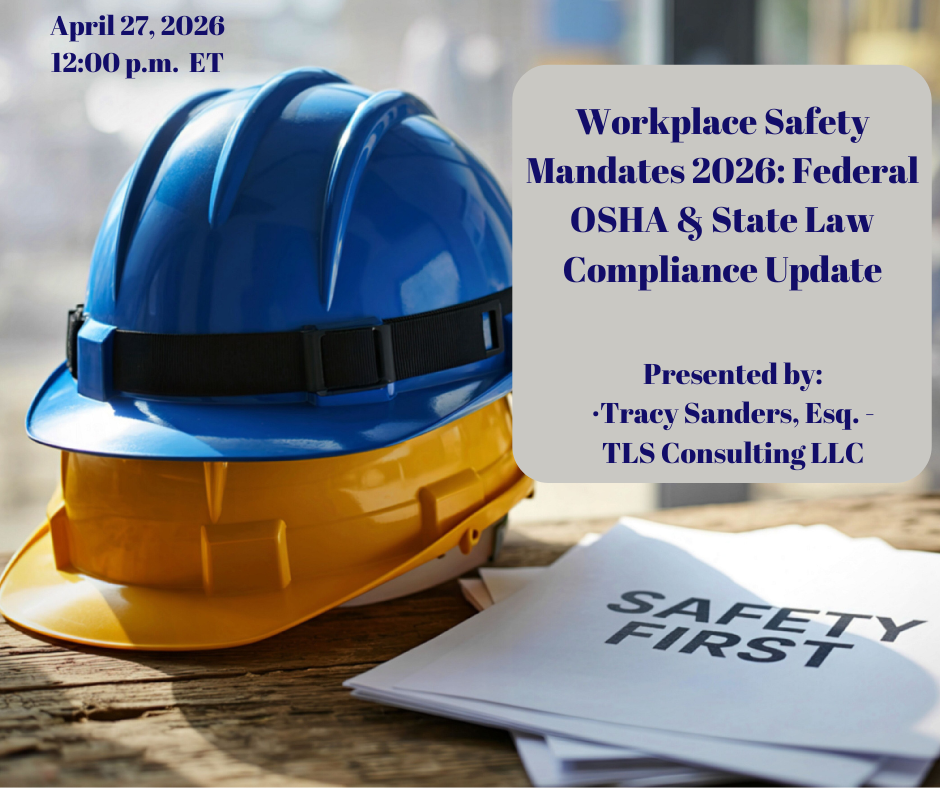
This continuing legal education (CLE) webinar provides comprehensive update on work? place safety ma...
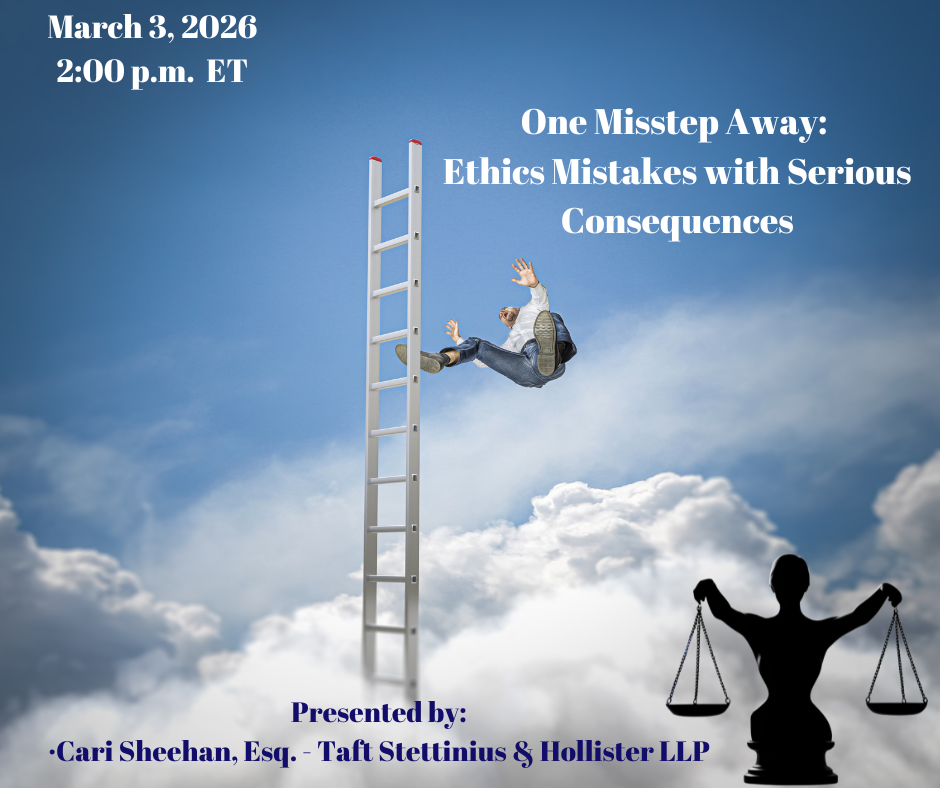
This ethics program examines common, but often avoidable, professional responsibility mistakes that ...
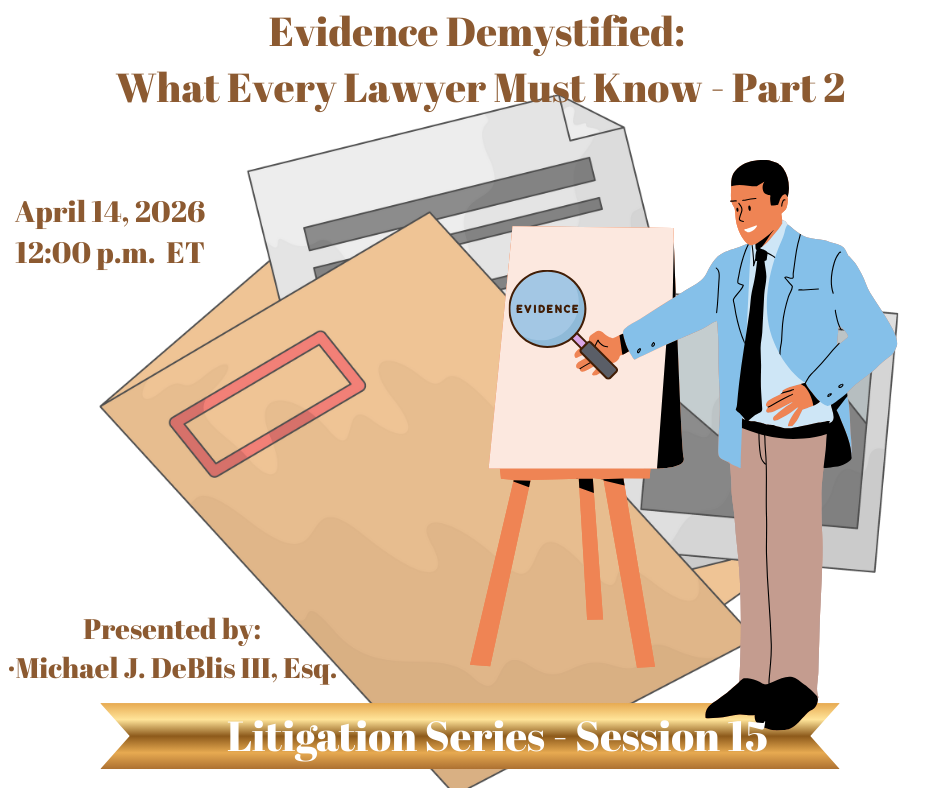
Evidence Demystified Part 2 covers key concepts in the law of evidence, focusing on witnesses, credi...